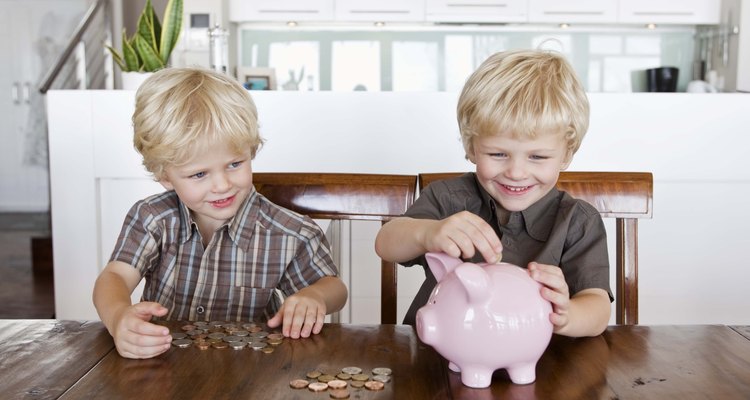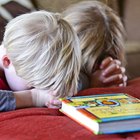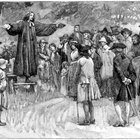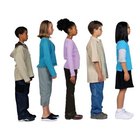
Jupiterimages/Goodshoot/Getty Images
Children should be taught from a young age about decision making and consequences. Preschool children can learn about decision making by playing games in which they are given a number of choices. Learning to make good decisions will prepare children for making more important decisions as they get older. According to Families Online Magazine, children who are aware of consequences are less likely to give in to peer pressure.
Shop
Set up a pretend shop in the classroom by setting out a pretend cash register and a number of items for the children to choose from, such as toys or plastic food items. Provide each child with two plastic coins. Allow the children to look around the shop in small groups and encourage each child to choose one item for each of the coins. Each child is only allowed to buy a maximum of two items. This teaches the children about making decisions and encourages them to think about the consequences.
The Moral Decisions Game
Talk to the children about making moral decisions in everyday life and write out questions for the children to answer. Some of the questions could be "What should you do if you find a lost toy that does not belong to you?" and "What would you do if you spilled some milk and your mom asked you if you did it?" Provide at least two answers for each question and ask the children to put their hands up when they think the answer is right. Then explain to the children what the consequences of each action would be and which is the right decision to make. The children who choose the correct answer for five questions win the game and can receive a prize, such as a sticker or gold star.
Happy Face Sad Face
Write out a number of sentences on the blackboard to describe different scenarios and leave a space for the children to fill in the word "happy" or "sad." For example "When Ben shares his toys with me I feel..." or "When Ben steals my toys I feel..." Provide each child with a paper plate. The plate should have a happy face drawn on one side and a sad face drawn on the other. For each sentence, ask the children to hold up their plate to show either a happy face or a sad face. Children who raise the correct face five times can receive a sticker or a gold star. This game can help to teach children about how decision making can affect others.
Making Decisions in a Story
Prepare a story for the children in which the main character has several decisions to make. Read the story out loud until the character has to make the first decision and then give the group of children a choice of actions. The story could begin with "Sarah is playing with a toy. She sees that George is playing with a toy that she wants. Should she a) steal George's toy, b) ask George if he would like to play together and share the toys." Ask the children to raise their hands for the decision they think the character should make. The children who choose the wrong answer are out of the game while children who choose the correct answer can continue to make decisions for the character in the story. The children who make all the right decisions and get to the end of the story can win a small prize, such as a sweet, sticker or gold star.
Related Articles

Faith Building Games for Children

Second Grade Holiday Party Games

Free Children's Bible Activities Grades ...

Children's Games That Demonstrate Faith

Middle School Bible Games

Children's Activities on Moses, the ...

Kid's Games for Hallelujah Night

Fun Activities for Kids Who Are Dealing ...

Children's Beatitude Activities

Crafts for Teaching Beatitudes to ...

Games for Mother of the Bride Luncheon

Children's Games to Teach About ...

Follow-the-Leader Children's Games

Adam & Eve Games for Kids

Valentine Bible Stories for Children

Pokemon Party Games

Children's Activities on Lying

How to Play a Trivia Game at a Birthday ...

Sunday School Games About Prayer

Fruit of the Spirit Activities for ...
References
Photo Credits
Jupiterimages/Goodshoot/Getty Images